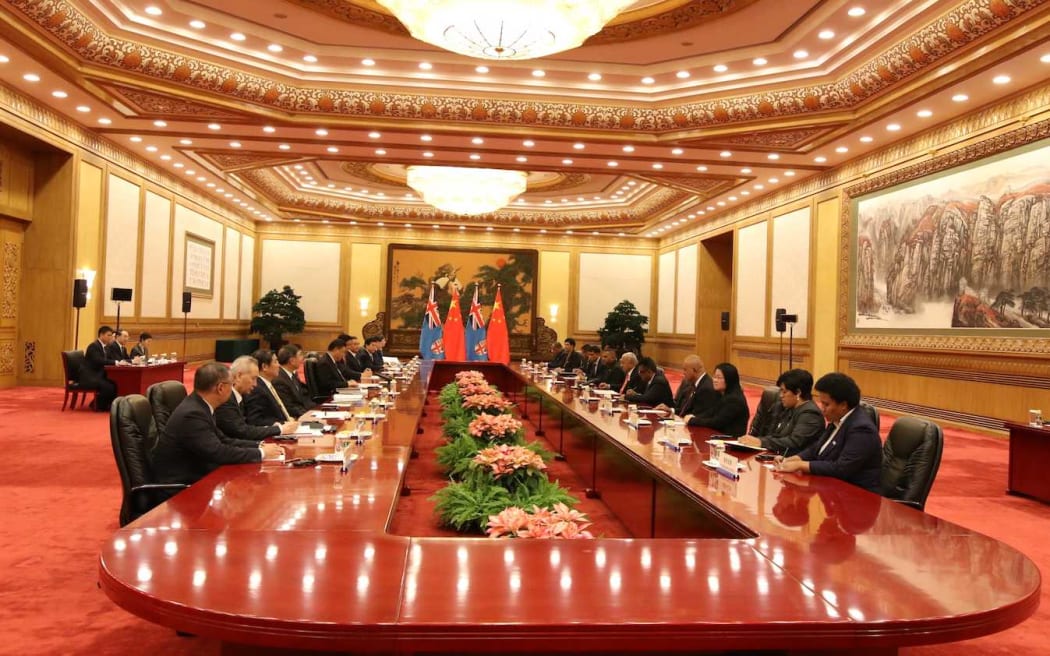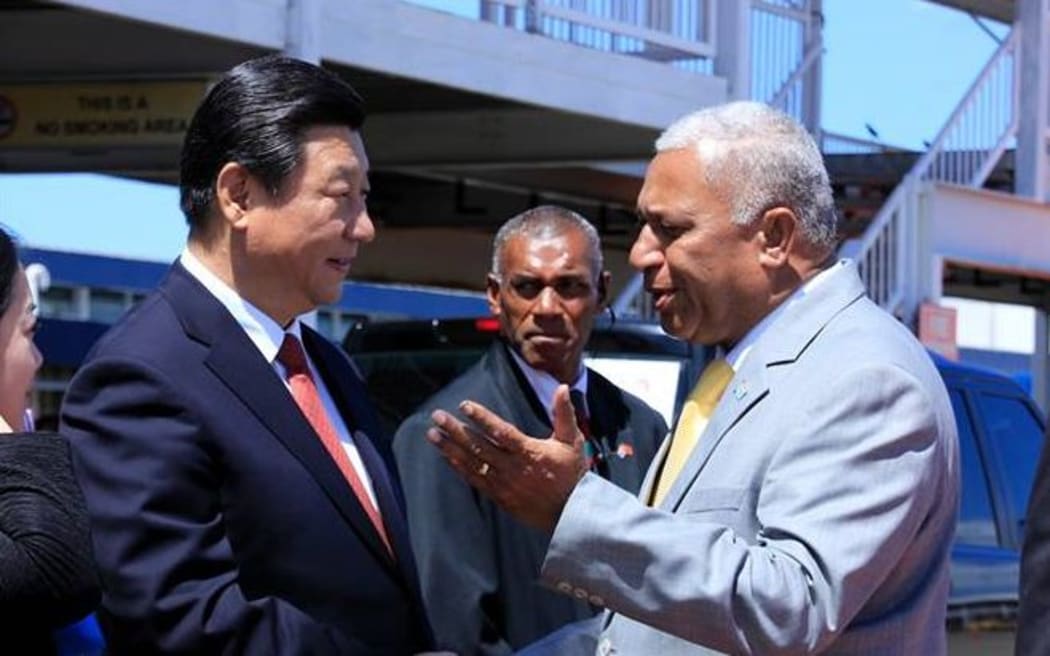Fiji has closed its representative office in Taiwan.
Taiwanese media quote Fiji's representative Karai Vuibau as saying the closure follows a review of Fiji's embassies and missions worldwide.
The closure coincides with Fiji's prime minister Frank Bainimarama attending China's Belt and Road summit in Beijing this week.

Fiji and China hold talks in Beijing, May 2017 Photo: Supplied/Fiji Government
Although Fiji has been adhering to the the One China policy, it opened a trade and tourism office in Taipei in 1975.
A Taiwanese politician Lu Shiow-yen said the closure was orchestrated by China to embarrass Taiwan.
She added that attempts by Taipei to convince Fiji to leave just one or two officials in Taiwan were unsuccessful.
The office served as Fiji's de facto embassy in Taiwan in the absence of formal diplomatic relations.
Taiwan has diplomatic ties with several Pacific countries, including Solomon Islands, Kiribati and Nauru.

Xi Jinping and Frank Bainimarama Photo: supplied
Fiji and China hold talks in Beijing
According to its president, Xi Jinping, China wants to expand cooperation with Fiji.
Xinhua reports Mr Xi met with the Fijian prime minister Frank Bainimarama on Tuesday.
Mr Bainimarama has been attending a two day infrastructure summit, the Belt and Road Forum for International Cooperation, in Beijing.
The news agency reports China is willing to expand cooperation with Fiji on agricultural technology, green development, investment and trade.
Mr Xi told Fiji's leader that China would encourage more tourists to Fiji and support the expansion of Chinese business in Fiji.
PM w/ President Xi: Fiji keen to work w/ China to implement the #ParisAgreement to limit the effects of climate change - such as #TCWinston pic.twitter.com/vQhWSjsyGl
— Frank Bainimarama (@FijiPM) May 17, 2017
According to Xinhua, Mr Bainimarama said Fiji would stick to the one-China policy.
He said Fiji would deepen cooperation with China in areas like agriculture, infrastructure, trade and people-to-people exchanges.
There would be more coordination on climate change and sustainable development, Mr Bainimarama said.

